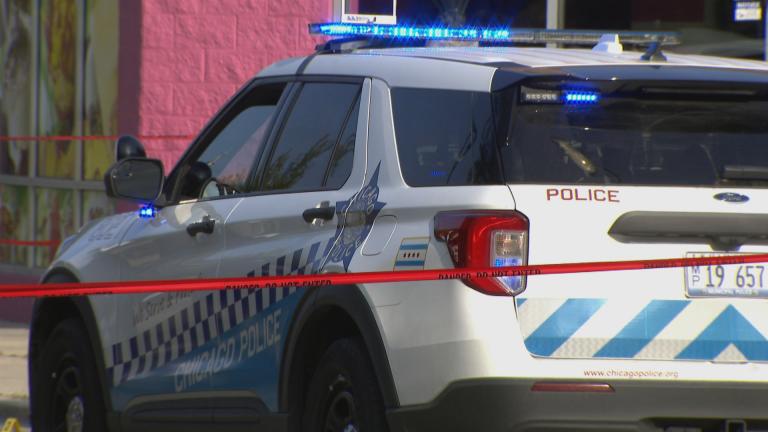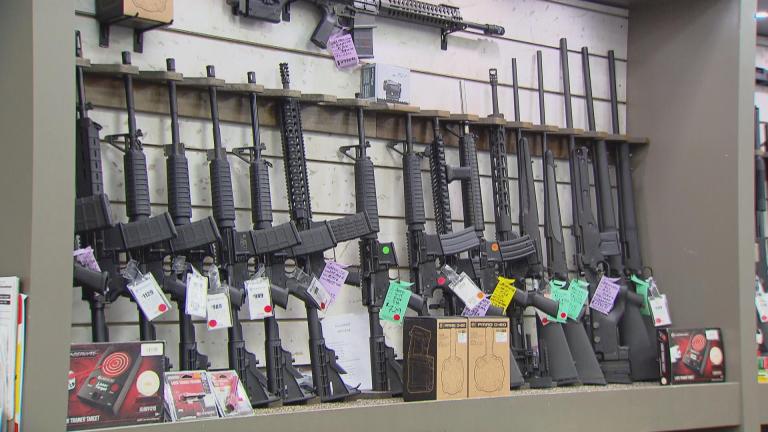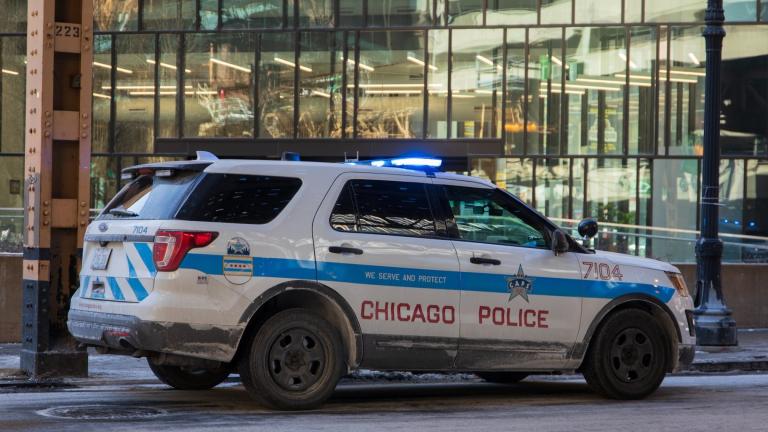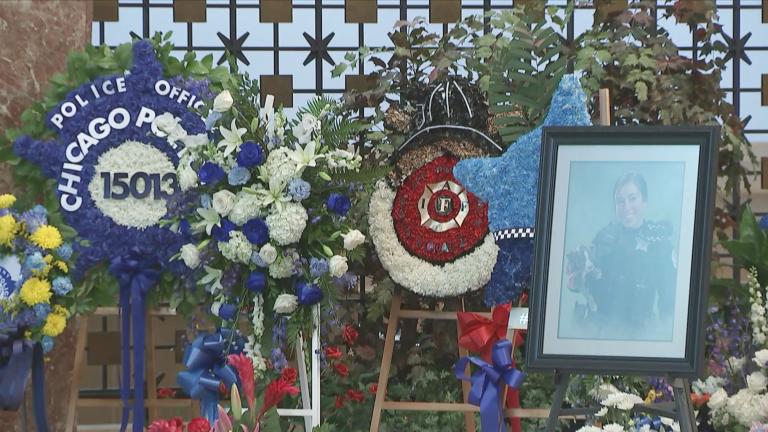Video: Chicago Park District Superintendent Rosa Escareño joins WTTW’s “Chicago Tonight” to discuss the Millennium Park rules and her new position leading the Park District. (Produced by Jennifer Cotto)
Rules requiring Chicagoans younger than 18 to be accompanied by a “responsible adult” in order to visit Millennium Park after 6 p.m. Thursday through Sunday took effect Thursday, as city officials released details of the new policy.
Mayor Lori Lightfoot announced the ban after the murder of 16-year-old Seandell Holliday just before 7:30 p.m. May 14 in the heart of Millennium Park amid what Lightfoot called “chaos and unnecessary violence.” A 17-year-old has been charged in connection with his death.
Chicago Park District Superintendent Rosa Escareño told WTTW’s “Chicago Tonight” that she supported the new policy that would be in place indefinitely.
“This is about safety and making sure we are doing everything to keep our youth and our families safe,” Escareño said.
While Lightfoot initially said the ban would apply to minors ages 16 and younger, rules released Thursday and signed by Department of Cultural Affairs and Special Events Commissioner Erin Harkey ban teens younger than 18 from the park. Officials did not explain the change.
The new rules were posted at the entrances to Millennium Park shortly after 6 p.m. Thursday. It appeared security guards were using metal detectors to search at least some visitors for weapons.
Visitors to the park should be prepared to present government-issued identification cards upon request, according to the rules. An adult who is at least 21 years old can accompany no more than four people under 18, according to the rules.
The rules also warn that the ban on teens in Millennium Park could be expanded to other days and times on “an as-needed basis, when justified by objective circumstances demonstrating a substantial likelihood of large gatherings of unsupervised youths.”
Teens who work at Millennium Park or who are attending an official, supervised event hosted at the park are exempt from the ban.
The ACLU of Illinois immediately blasted the new policy as “too vague, allows too much discretion and does not recognize the right to protest for those under 18.”
The other policy change announced by Lightfoot in the wake of Seandell’s death amid the outrage and grief it created faces a key test Friday morning.
Lightfoot will ask the City Council’s Public Safety Committee to ratify her plan to extend the city’s teen curfew on weekends by an hour and expand it to include Chicagoans 18 and younger, not just those 17 and younger.
Read the mayor’s proposal here.
The city’s curfew for minors has been on the books since 1992, and applies to teens between the ages of 12 and 16. That law requires Chicago teens to be home by 10 p.m. Sunday through Thursday and 11 p.m. Friday and Saturday.
Lightfoot wants the curfew to start at 10 p.m. seven days a week.
The mayor’s proposal would add another exemption to the city’s existing curfew law, which now has four exemptions.
The law exempts teens from the curfew if they are “exercising First Amendment rights protected by the United States Constitution, such as the free exercise of religion, freedom of speech, and the right of assembly”; going to or from a job or employment activity; being involved in an emergency situation; or running errands at the direction of a parent or guardian.”
Lightfoot wants to exempt teens “participating in, or returning home immediately after, a ticketed or sponsored event and has documentary evidence of their attendance at such event, e.g., a ticket stub or wristband with the event name preprinted on it” from the curfew.
That would apparently allow teens to attend Lollapalooza, which is set to take place July 28 through July 31 in Grant Park, and other summer festivals and concerts.
The city’s curfew law authorizes Chicago police officers to “to take such minor into custody until such time as the minor’s parent, legal guardian, or other adult having legal care or custody of the minor is located and notified of the violation, and takes custody of the minor from the police. If no such person can be located within a reasonable period of time, the minor shall be referred to the appropriate juvenile authorities.”
Lightfoot’s proposal makes no changes to the way Chicago police officers are authorized to enforce the curfew.
But Lightfoot has declined to say exactly what consequences teens could face for defying the ban, telling reporters city officials would “exhaust all other options before they take law enforcement actions.”
“We don’t want to arrest children,” Lightfoot said Monday. “If we have to because they’re breaking the law, we will.”
Ald. Carlos Ramirez Rosa (35th Ward) sent a letter to the other members of the Chicago City Council on Thursday urging them to vote against the proposal, saying it will not reduce crime.
“While I know Mayor Lightfoot is introducing this ordinance with the best intentions, the evidence is clear that juvenile curfews are counterproductive for public safety,” Ramirez Rosa wrote, citing several academic studies.
Contact Heather Cherone: @HeatherCherone | (773) 569-1863 | [email protected]






